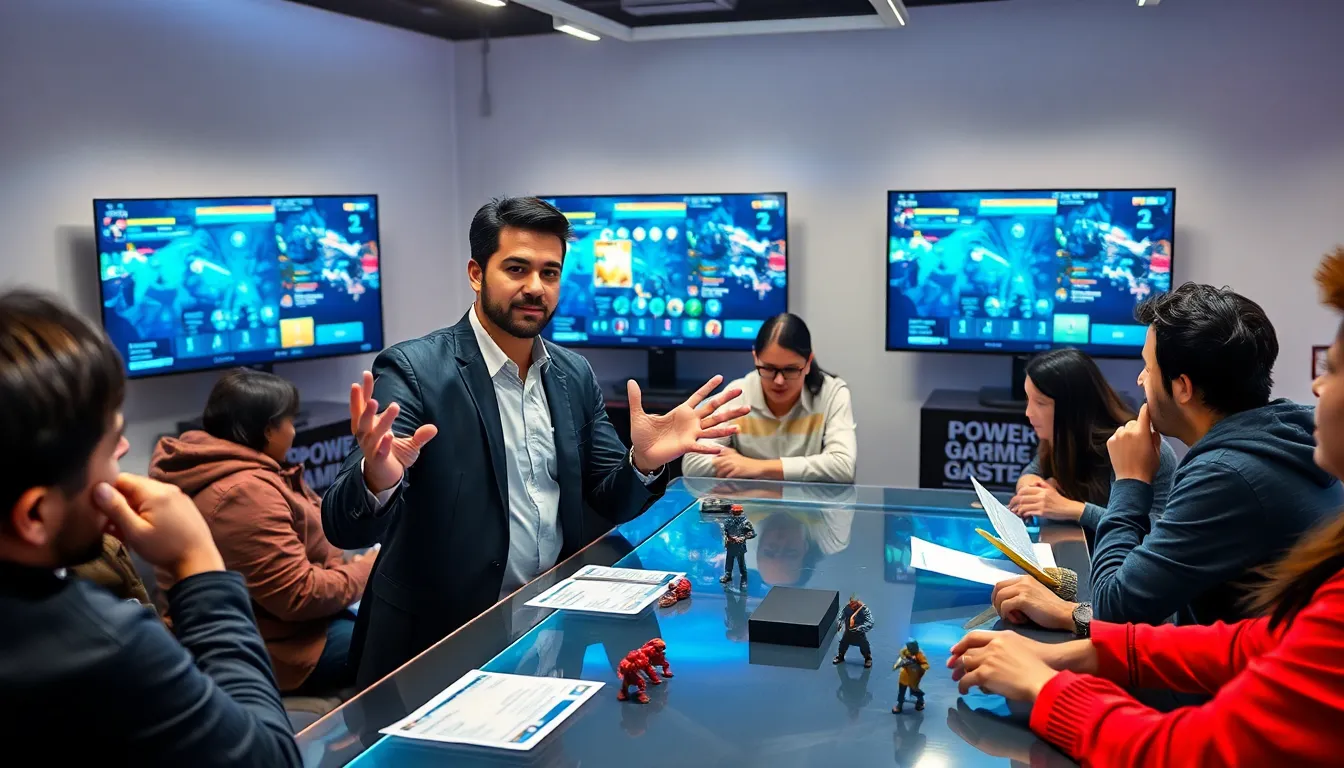Table of Contents
ToggleHave you ever jumped into a gaming session, only to find yourself up against a character who seems to operate on a different level? Enter power gaming, where victory often takes precedence over traditional role-play. Picture this: a player takes on the role of a demigod wielding unlimited powers while others struggle with mere mortals. It’s both fascinating and a bit infuriating. Let’s unravel what power gaming really means, how it originated, and what its impact can be on your gaming experience.
Understanding Power Gaming

Power gaming refers to a style of play in video games or tabletop role-playing games where a player focuses on maximizing their character’s abilities, often to the detriment of other aspects like storytelling or character development. Instead of engaging in cooperative role-playing, power gamers may prioritize winning or achieving objectives above all else. This often manifests in opportunistic tactics where the player uses in-game mechanics to circumvent rules or expectations, essentially bending the game to ensure they come out on top.
Imagine a knight who can slay dragons with a flick of their wrist, ignoring the rich lore of his backstory. This is the quintessential power gamer. They exploit mechanics cleverly, leveraging loopholes to dominate interactions. The result can be thrilling for them, but let’s be real: it can make the game less enjoyable for others, leading to frustrations and, dare we say, rage quits.
The Origins of Power Gaming
Power gaming has roots that stretch back to the early days of tabletop games like Dungeons & Dragons (D&D). Players eager for success often found ways to optimize their characters, combining skills and items for maximum effectiveness. While the term itself gained traction in the 1990s with the rise of online gaming, the idea of seeking advantage in gameplay has been around for decades. Many would argue that power gaming evolved as a response to competitive environments, where players wanted to outshine others and secure their place at the top of the leaderboard.
As digital gaming grew in popularity, power gaming began to flourish in MMORPGs (Massively Multiplayer Online Role-Playing Games) such as World of Warcraft. Here, players could spend countless hours min-maxing their characters, exploiting every possible advantage. What began as a quest for individual success morphed into a subculture within gaming, one that now commands both dedication and debate.
Characteristics of Power Gaming
Power gaming is characterized by certain telltale signs that separate it from more traditional, immersive gameplay.
- Overemphasis on Mechanics: This style often hinges on maximizing stats and abilities rather than following the storyline.
- Disregard for Narrative: A power gamer may disregard their character’s backstory in favor of pursuing the most effective strategies.
- Competitive Mindset: The focus is on winning at all costs, which can lead to competitive strife within a team.
- Exploitation of Game Rules: Power gamers keenly exploit game mechanics, often pushing boundaries to gain an upper hand.
While these traits can result in impressive victories, they often come at the expense of camaraderie and shared experiences. It’s like being at a party where one person hogs the dance floor and everyone else is left standing awkwardly.
The Impact of Power Gaming on Gameplay
The presence of power gaming can drastically alter the dynamics of gameplay, affecting both individual experience and group interactions. For instance, when a player monopolizes the spotlight with their overpowered character, it can lead to feelings of disenfranchisement among others. The delicate balance of teamwork and collaboration often shifts, fostering an atmosphere where other players feel their contributions are diminished.
Conversely, environments that tolerate or encourage power gaming can breed competitiveness that might invigorate some while alienating others. In a sense, it’s a double-edged sword. For some gamers, the thrill associated with achieving high scores or beating the odds is what keeps them coming back for more. Others, but, might find their enthusiasm waning as they struggle to keep up.
This shift can determine not just the nature of the game session but also set the tone for ongoing friendships and community bonds.
Balancing Power Gaming and Role-Playing
Finding harmony between power gaming and genuine role-playing is akin to walking a tightrope. On one side, you have those devoted to character development and narrative depth, while on the other side, the power gamers loom large, ready to dominate. One approach to creating equilibrium lies in open communication. Setting clear expectations before a game begins can help delineate what style of play everyone is comfortable with.
Integrating character limitations can also help ensure no single player monopolizes the experience. Game masters and leaders can impose restrictions or incentives that encourage players to create well-rounded characters instead. When power and storytelling weave together, gaming sessions can flourish in ways that entertain while still respecting the spirit of competition.
Strategies to Counter Power Gaming
Combating power gaming requires a multi-faceted approach that emphasizes strategy and collaboration. Here are a few effective tactics:
- Establish House Rules: Game masters can carry out rules that limit character enhancements, creating a more level playing field.
- Encourage Cooperative Play: Design challenges that require collaborative efforts. When teamwork is key, individual exploits become less impactful.
- Use Narrative Elements: Stress the importance of storytelling through mechanics. Create scenarios where character backstories can influence outcomes, effectively enhancing roles over sheer power.
- Set Up Rewards for Role-Play: Provide in-game advantages or rewards for players who engage meaningfully with their characters and the story.
By integrating these strategies into the gameplay, it becomes possible to mitigate the sharp edges of power gaming while promoting a richer, more enjoyable experience for all.







